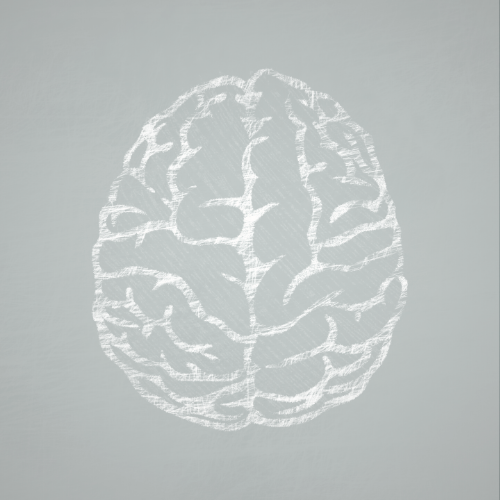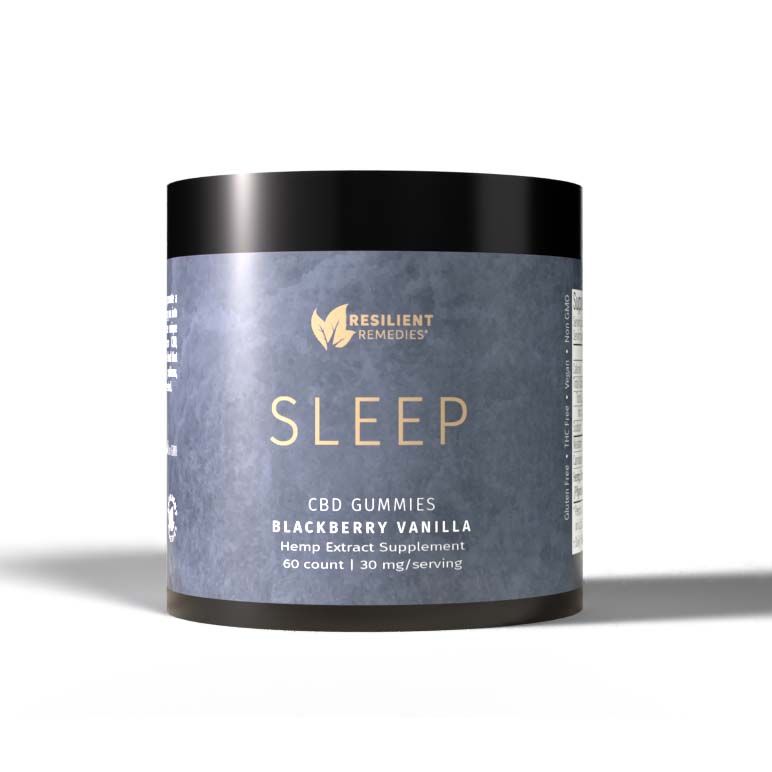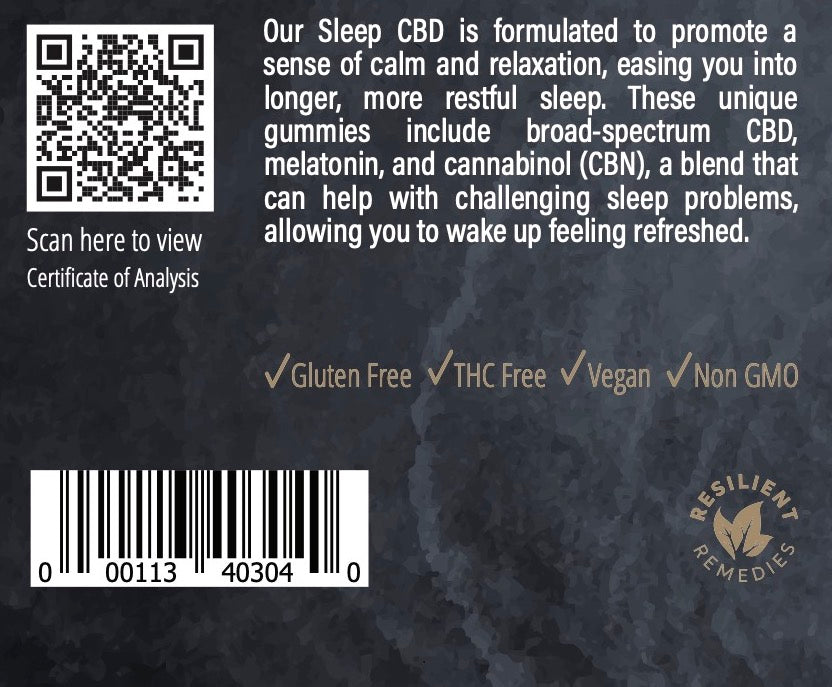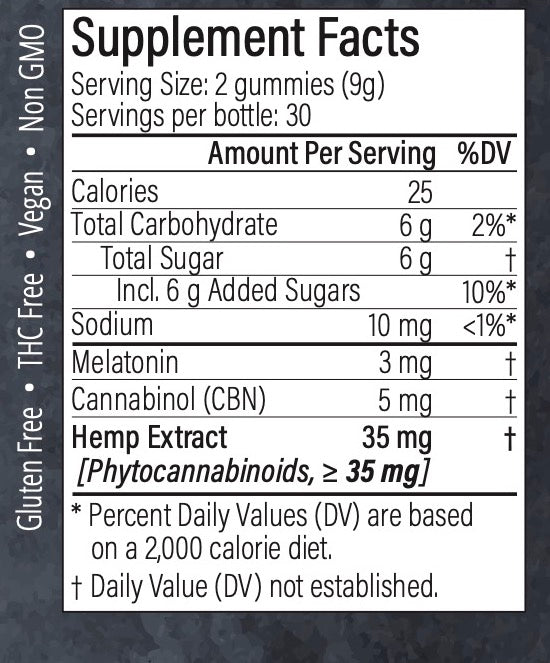
Details
Use: A wellness regimen works variably within the human body based upon genetic composition; this is especially true for the endocannabinoid system.
Directions: As a general rule, we recommend beginning with 2 CBD gummies daily, 30-60 minutes before bed, and titrate up or down until you reach your desired results or as recommended by your health care professional.**
Results are typically experienced within 5-7 days.
Notes: If you are pregnant or nursing, consult your physician before taking this product. Contains several naturally occurring cannabinoids and terpenes. These broad-spectrum gummies contain no detectable THC.
Product Information: Contains 60 gummies per jar, 30mg CBD per serving. All Resilient Remedies™ Formulas Meet or Exceed cGMP Quality Standards. Keep out of reach of children.
Gluten-free, Vegan, Non-GMO, THC-Free, Child-resistant jar
Ingredients
Hemp Extract (Aerial Plant Parts), Cannabinol (CBN), Melatonin. Other Ingredients: Sugar, Tapioca Syrup, Water, Pectin, MCT Oil, Citric Acid Solution, Less than 1% of: Natural Flavors & Color, Tri-Sodium Citrate.
*Please refer to our Return Policy and Customer Satisfaction Policy before placing your order.
More about CBD
Discussion
Over production of inflammatory cytokines in the body may lead in part to inflammatory conditions like bowel diseases, rheumatoid arthritis, atherosclerosis, and more.[1] Cannabinoids have recently sparked interest among the public for a wellbeing support product for inflammation. For millennia, the cannabis plant has been used for its fibers and as a food source, and relatively recently, as a medicinal and ritual substance.[2] Ancient texts from the Chinese, Egyptians, Greeks, and Romans describe using cannabis for inflammation, fatigue, pain, and mood.[3] To- day, cannabinoids have been extracted from the cannabis plant to be used for a variety of reasons. Patients report seeing benefit in pain reduction, sleep quality, and im- proved wellbeing. Reducing the pro-inflammatory cells and stopping the inflammatory cascade could help pa- tients with those inflammatory conditions.[1]
Cannabinoids
Cannabidiol (CBD) is the most abundant cannabinoid in the hemp plant and is non-psychoactive. It has shown to reduce seizure frequency in certain kinds of epilepsy[4], improved patient reported sleep and anxiety levels[5], and possible adjunct therapy for patient reported improved quality of life in other diseases6. Dosing has been studied with diverse outcomes. This could be likely due to each individual having a different endocannabinoid tone and differing genetic makeup, especially Cytochrome P450 enzymes.[7-9] Cannabigerol (CBG) is found in smaller quan- tities in certain strains of the hemp plants and like CBD, is also non-psychoactive. Combining CBG with CBD has shown to reduce inflammatory cells like TNF-α, which is a main inflammatory marker for autoimmune conditions, as well as inhibiting NF-κB from activation.[10-11]
Contraindications
Research suggests that many reported side effects that occur with CBD use are most often the result of drug-to-drug interactions between CBD and other medications an individual may be taking. That's why it's so important to speak with your doctor before starting any supplement, and this is particularly true with CBD.
Here's how these interactions occur: CBD is broken down by the body via the same pathway as many prescription drugs. If multiple compounds are competing in this pathway (e.g., CBD and a prescription drug), then something called "altered concentration" can occur. This means that too little or too much of the drug is left in the body. When too little remains, a drug may no longer work as intended. When too much remains, side effects may increase. Penn State College of Medicine has a really handy list of medications that may be impacted by altered concentration due to a combination with cannabinoids. Unfortunately, this list does not make any distinctions between CBD or THC, but it provides some guidance. Bring this list to your doctor before starting any CBD product.
Penn State also found potentially serious interactions between prescription CBD and THC products and the following products:
- Warfarin and other blood thinners
- Amiodarone (heart medication)
- Levothyroxine (thyroid medication)
- Seizure medications (clobazam, lamotrigine, valproate)
Disclaimer
*The statements made regarding these products have not been evaluated by the Food and Drug Administration. The efficacy of these products has not been confirmed by FDA-approved research. These products are not intended to diagnose, treat, cure or prevent any disease. All information presented here is not meant as a substitute for or alternative to information from health care practitioners. Please consult your health care professional about potential interactions or other possible complications before using any product. The Federal Food, Drug, and Cosmetic Act require this notice. Do not use if tamper seal is damaged.






